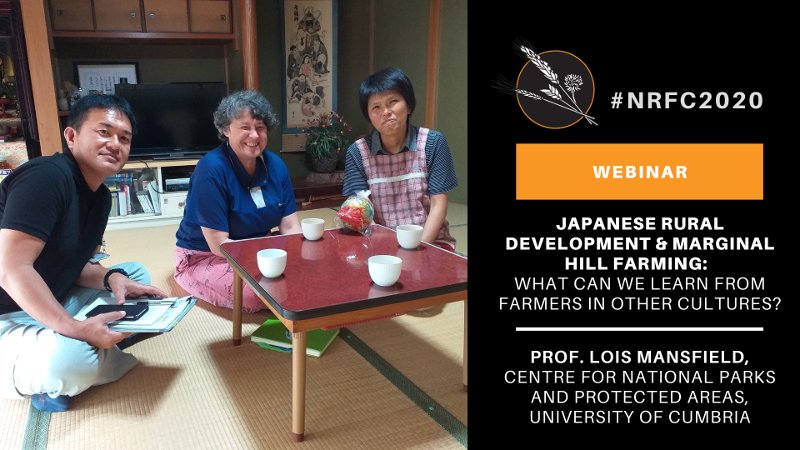This session outlined how the Japanese have addressed the decline of their marginal hill farming businesses and communities. Whilst there are the usual grants and schemes from the government, Japanese farmers have taken it upon themselves to come up with a range of innovations (some which we are familiar with, and others we are not) in order to maintain their farm businesses and their farming communities. Japan is a developed country facing a range of identical and specific challenges to UK uplands. How can we harness their ideas to help our upland economy flourish?
Ideas from Japan include: bringing farm woods back into productive capacity, novel food production eg charcoal in food stuffs (delicious!), added value and community-led projects such as local food/craft outlets for local product. The audience were also introduced to the FAO’s Globally Important Agricultural Heritage Systems (GIAHS) which emphasises the cultural, economic and environmental value of traditional farming systems by helping them use the landscape as a brand tool to increase GVA for the wider community.
The presentation generated a number of discussion points drawing from Japanese innovation revolving around the relationship between public and private investment, capacity to diversify at the farm level and how we can create more community driven projects. The consensus was that access to labour was a key element for any hill farming business in this country to benefit from new opportunities. With respect to community, there were divided views as to how to encourage more community-driven projects as farmers rarely have time to engage (due to lack of labour again); there are examples in a few places where these are happening eg Ullswater CIC in the Lake District, but even within that, there are time commitment challenges. Perhaps the Shared Prosperity Funds will provide opportunities here. The issue of succession was also discussed as to how we could make land or full time jobs available to more young people wanting to go into farming. Again there are a few pilot examples such as the Fell Farming Traineeship Scheme supported by Cumbria Fells & Dales LEADER+ back in 2008. The GIAHS concept created much interest and the presenter would like to hear from anyone who thinks we need to raise this concept up the political agenda to support agricultural heritage systems in the UK.
You can watch the recording of the session here.

